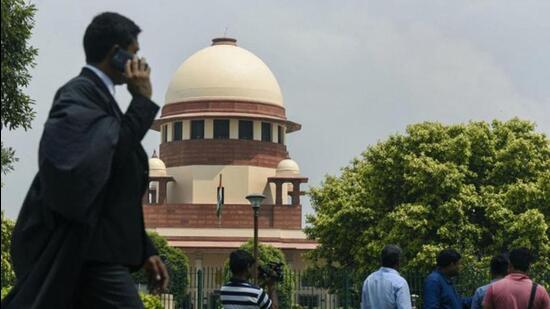SC gives National Medical Commission 2 months to revise guidelines for disabled
The bench directed the NMC to revise its guidelines within two months in line with the recent rulings of the top court granting admission to persons with benchmark disability for admission in MBBS courses.
The Supreme Court on Monday told the National Medical Commission (NMC) that no deserving disabled candidate should be denied admission to undergraduate medical courses, as it granted admission to a Scheduled Caste person with 68% locomotor disability in the All India Institute of Medical Sciences (AIIMS) this year.

“It must be ensured that systemic discrimination against persons with benchmark disabilities, whether direct or indirect, is eliminated and that the admission process upholds their right to equal opportunity and dignity,” the bench of justices Vikram Nath and Sandeep Mehta said.
The bench directed the NMC to revise its guidelines within two months in line with the recent rulings of the top court granting admission to persons with benchmark disability (PwBD) for admission in MBBS courses.
The court was dealing with a petition filed by one Kabir Paharia, who qualified in the NEET-UG examination last year and got a seat in AIIMS under the SC-PwBD category purely on merit. He suffered from “congenital absence of multiple fingers in both hands as well as involvement of left foot (2nd and 3rd toe)”. Despite this, he scored 542 marks in NEET-UG, with a category rank of 176.
However, the medical board constituted by Vardhman Mahavir Medical College (VMMC) at Safdarjung Hospital declared him to be ineligible to pursue a career in medicine and refused him admission. He challenged this decision in the Delhi high court, which dismissed his petition in November last year.
The VMMC medical board observed that the appellant demonstrated the functional adaptation using his existing digits during performance of several tasks. However, he faced a challenge putting on the sterilised standard gloves. The court took the assistance of senior advocate Gaurav Agarwal who suggested that the Rights of Persons with Disabilities 2016 (RwPD) talks of “reasonable accommodation” which must be interpreted in the light of fundamental rights under the Constitution.
Dealing with his appeal, the order penned by justice Mehta said, “We feel that the mindset must change and this trivial aberration, by no stretch of imagination, can be a ground to deny admission to the appellant in the MBBS UG course, when he is otherwise qualified and scored exceeding high rank in the NEET-UG 2024...Such action not only reflects institutional bias and systemic discrimination but also undermines the principles of equal opportunity and non-discrimination enshrined in our constitutional framework.”
As the Centre was willing to accommodate him against a MBBS seat this year, the court passed the direction and waived the necessity to again appear in the NEET examination. The bench reminded the authorities, “The constitutional mandate of substantive equality demands that person with disabilities and PwBD be afforded reasonable accommodations rather than subjected to exclusionary practices based on unfounded presumptions about their capabilities.”
“We further direct that the NMC shall forthwith and not later than within a period of two months from today, and at any cost before the counselling for the 2025-2026 session, shall commence, complete the process of revising the guidelines so that no deserving candidate in the PwBD category is denied admission into the MBBS course in spite of his/her/their entitlement,” the court said.
It referred to its 2024 decision in the ‘Om Rathod case’, where he had a lower limb myopathy exceeding 80% and a recent case in ‘Anmol vs Union of India’, decided in February 2025, where the petitioner had 50% locomotor disability with other related deficiencies.
The court said that “reasonable accommodation” is not a matter of charity but a fundamental right flowing from Articles 14, 16, and 21 of our Constitution.
“When administrative authorities create arbitrary barriers that exclude qualified PwBD candidates, they not only violate statutory provisions but also perpetuate the historical injustice and stigmatisation,” the court held.






